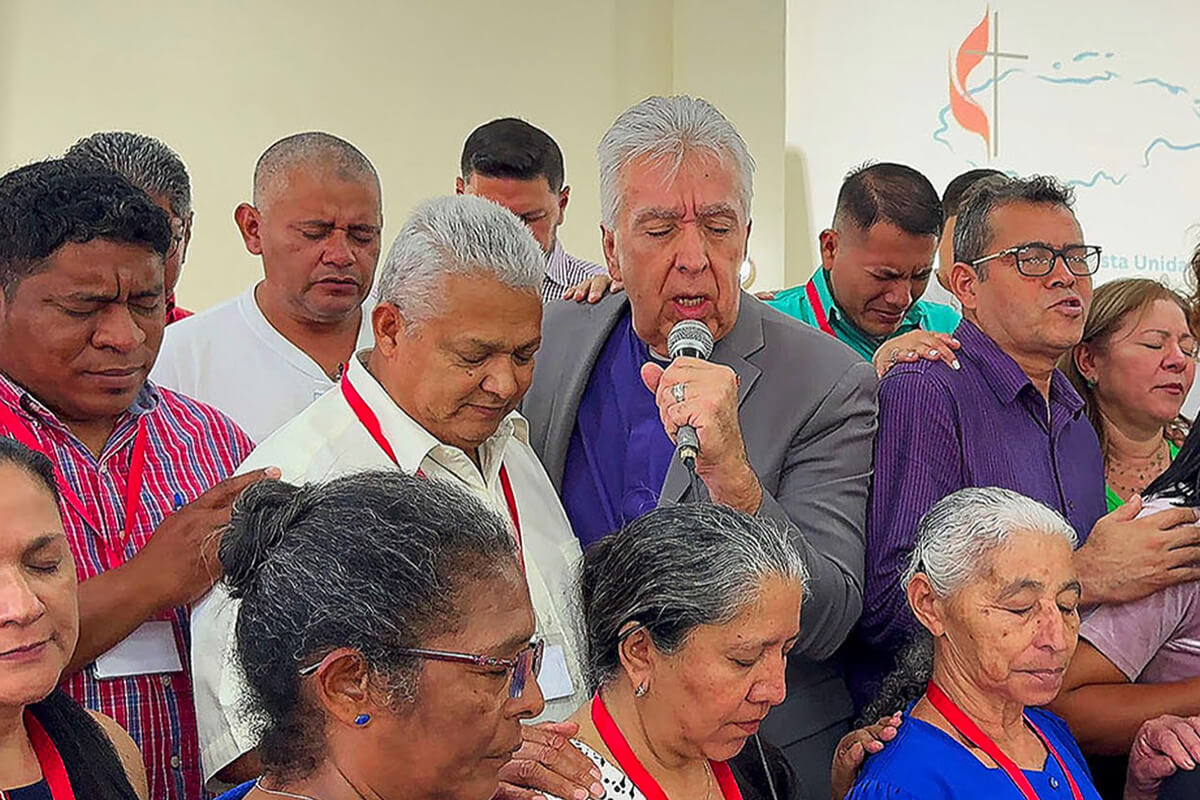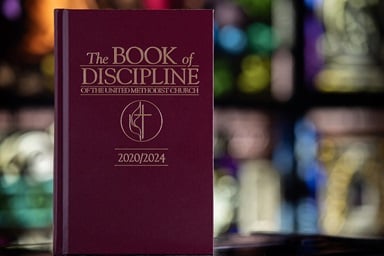Key points:
- The annual meeting marks the first visit by the mission’s new leader, Bishop Rubén Saenz, and the first in-person gathering since the pandemic.
- The bishop and mission leaders want to raise awareness in the rest of the denomination and build relationships with U.S. churches and annual conferences.
- Saenz will initially focus on fine-tuning processes in order to equip leaders and help congregations develop.
Gathering for the first time since the pandemic, pastors and lay leaders welcomed their new bishop and set goals for strengthening the United Methodist Mission in Honduras.
The March 18 annual meeting marked the first official visit by the mission’s newly appointed episcopal leader, Bishop Rubén Saenz. It was also the first in-person gathering following a long pause caused by the COVID-19 pandemic and changes in the mission’s structure and leadership.
The mission in Honduras is The United Methodist Church’s only ecclesial presence in Latin America, comprising 24 churches and smaller missions with nearly 1,800 people nationwide.
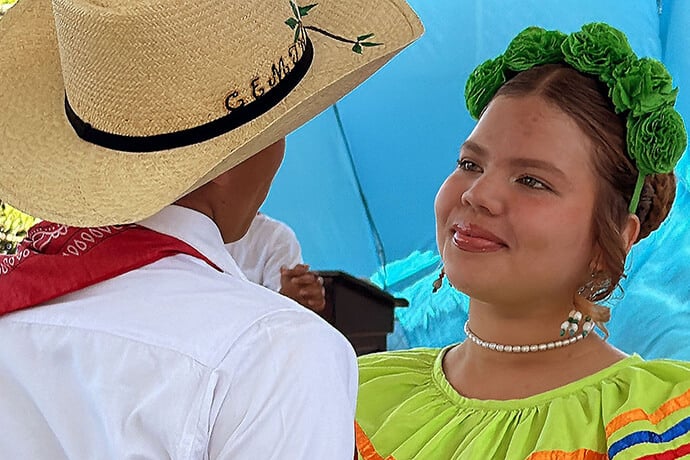
Clergy and lay delegates from local churches, missionaries and representatives from ministries and United Methodist institutions in Honduras met with the bishop and his retinue at the United Methodist Church at Nueva Era, home of the mission’s administrative offices. The bishop’s team came from the Horizon Texas Conference to get a deeper understanding of the local leadership and its realities. The new Horizon Texas Conference is made up of three former conferences: North Texas, Central Texas and Northwest Texas.
Raising awareness of the mission in the rest of the denomination and stimulating missional relationships with churches and annual conferences in the U.S. were major goals set by the episcopal delegation.
The mission seeks to foster new relationships, as well as resume several initiatives and joint efforts that were underway between United Methodists in the U.S. and Honduras before the COVID-19 pandemic in 2020 put them on hold.
Upon arriving in Honduras, the bishop and his delegation first visited the John Wesley Methodist Educational Center in Ciudad España, Morazán Department, 40 kilometers northwest of the capital, Tegucigalpa.
There, Saenz met with students, who welcomed the delegation with dance and theater performances highlighting the cultural, ethical and religious values that are part of the education they receive at the center.
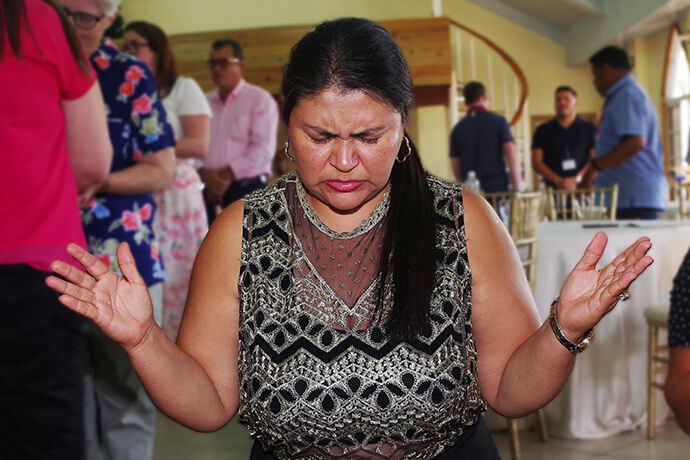
Since its founding, the center has been a nonprofit institution that seeks to provide a comprehensive education and ethical values to students in Ciudad España, where poverty and a lack of alternatives lead many young people to be recruited by criminal gangs. The center was the first school to offer secondary education in the area, opening in 2014 when the mission was started.
Professor Amanda Martínez, the scholarship program coordinator, shared a presentation in which she emphasized the importance of collaboration and support that annual conferences, local churches and individuals can offer to help the school continue serving young people in the area.
“The annual scholarship amount calculated for each student is US$469, which is intended to maintain the school, which currently has a capacity of 280 students per shift,” Martínez said.
She said that “most students receive scholarships to pursue their studies, as it is very difficult for low-income families to cover the full costs of the education offered by the school.”
The John Wesley Methodist Educational Center has established itself as an institution of recognized academic standing in the country and has received awards for its teaching work. It is supported by the United Methodist Board of Global Ministries through Advance #3022280. It receives donations from individuals and institutions, which are specifically designated to support the work of the school and the reduction of risks faced by local youth.
The development of leaders at all levels and the ordination of presbyters is a process that has been underway in the mission for some time, so the activities of this annual meeting balanced pedagogical and administrative needs.
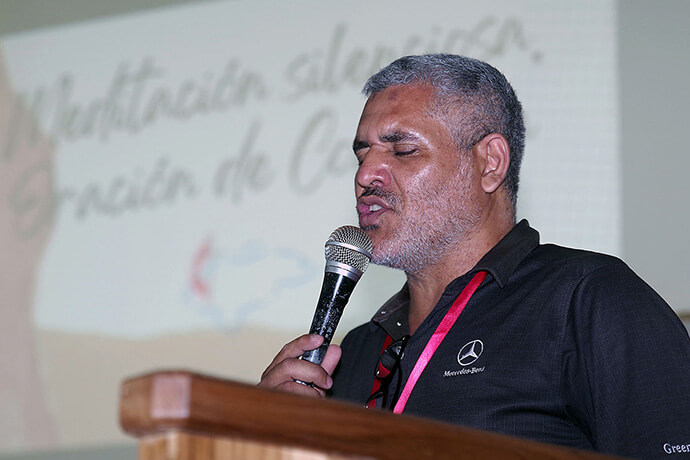
During the opening service, Bishop Saenz preached on the importance of the church’s unity, with the common purpose of reflecting God’s love in the communities where the church is present. “Divisions weaken our witness,” Saenz said, recalling the apostle Paul’s teaching to the early church.
“Here in Honduras, where there is a deep culture that enhances community values, we must understand that love is more than a feeling; it is the nourishment needed by those who suffer from hunger; it is the shelter needed by those who suffer from helplessness; it is a sacrificial expression that, when we share it together, we are a reference and an example for the world,” Saenz emphasized from the pulpit.
He urged the church to reflect unity from the local level to the global connection inherent in United Methodism; be committed witnesses in a country full of needs; train people who can lead the church in witness; and cultivate compassion, forgiveness and solidarity. These are ways in which the church can reflect the living love of Christ, he said, “because people are going to ask us, ‘Don't tell me God loves me, show it to me.’”
Subscribe to our
e-newsletter
During the closing worship, the communion was ministered by Saenz and the Rev. José Roberto Peña, bishop emeritus of the Methodist Church of Puerto Rico. Peña has been the mission superintendent and pastor of several local churches since 2001, when he arrived as a missionary from Puerto Rico.
Pastor Luis Soto gave the closing sermon, stressing the importance of the Wesleyan tradition as a tool for strengthening ecclesial identity but also for spiritual growth and development. “Our faith is strengthened in God when we practice spiritual disciplines (fasting, meditation), something that is very much part of the Wesleyan tradition and that gave rise to the Methodist movement,” he said.
As part of the agenda, the plenary received reports on the general status of the mission, the annual districts’ (North, Central and Eastern) performance, United Methodist institutions (such as John Wesley Educational Center), finances and other ministries.
In other business, the assembly reduced the number of districts to two and appointed Soto as Northern District superintendent and Peña as Eastern-Central District superintendent.
It also ratified the Ordained Ministry Committee, which will be responsible for supporting and monitoring the training of pastors seeking to be ordained as elders of The United Methodist Church in Honduras. In addition to Peña and Soto, the committee comprises Pastor Magdalena Zelaya (president), Pastor Orlin Ochoa, Pastor Daniel Contreras and Rosa Calix.
The United Methodist Mission in Honduras began in 1997 under the initiative of the Rev. Armando Rodríguez, who was the first serving bishop of the Methodist Church in Cuba. After retiring and immigrating to the U.S., he became a Global Ministries missionary. Missionaries from Puerto Rico, the U.S., Paraguay, Costa Rica and other countries are part of the history of this mission.
Saenz is the third episcopal leader of the mission in Honduras, preceded by Bishop Elías Galvan (the first Hispanic elected to the episcopacy in The United Methodist Church) and Bishop Mike McKee, who retired in recent years.
Before his assignment with the Horizon Texas Conference, Saenz led the Central and North Texas conferences. Previously, he led the Great Plains Conference after being elected bishop in 2016. He is the denomination’s fifth Hispanic bishop and has been committed to the Hispanic-Latino communities in the U.S.
“I have always felt a moral obligation to serve my community pastorally,” he said. “... That is why I felt God’s call to respond to the invitation of the general secretary of the United Methodist Global Ministries to serve in the United Methodist Mission of Honduras.”
He will focus initially on fine-tuning the mission’s administrative and programmatic structure and consolidating existing processes in the areas of theological formation and pastoral care. “In this way, we can equip leaders and their congregations with tools for their development, supported by an accurate communication strategy that allows us to promote and visualize the work of the mission among the UM annual conferences,” he said.
In July, Saenz will participate in a continental consultation in Panama City, Panama, promoted by Global Ministries with the participation of the bishops and autonomous Methodist churches of Latin America and the Caribbean that are grouped in CIEMAL (Latin-American and Caribbean Council of Evangelical Methodist Churches). It will be his first time representing the denomination in the Latin American and Caribbean ecumenical context.
Vasquez is the team lead for Hispanic/Latino Partnerships for United Methodist Communications. Contact him at (615) 742-5470 or [email protected]. To read more United Methodist news, subscribe to the free UM News Digest.

